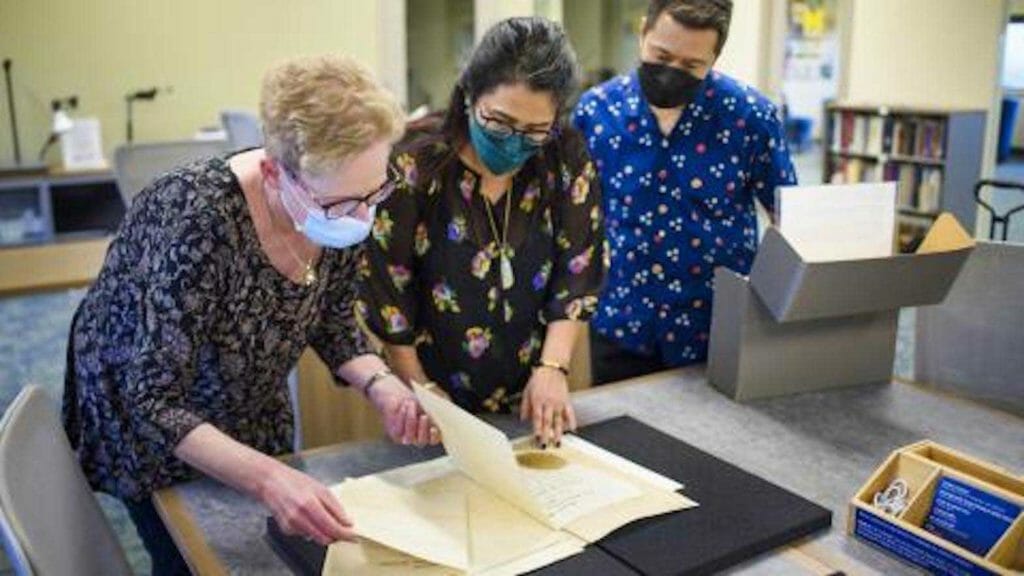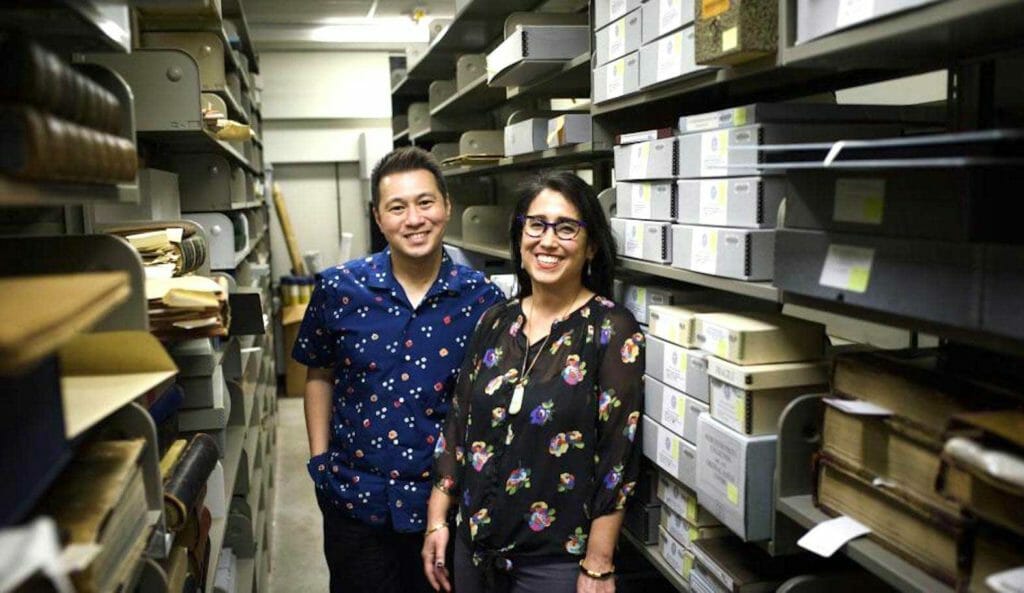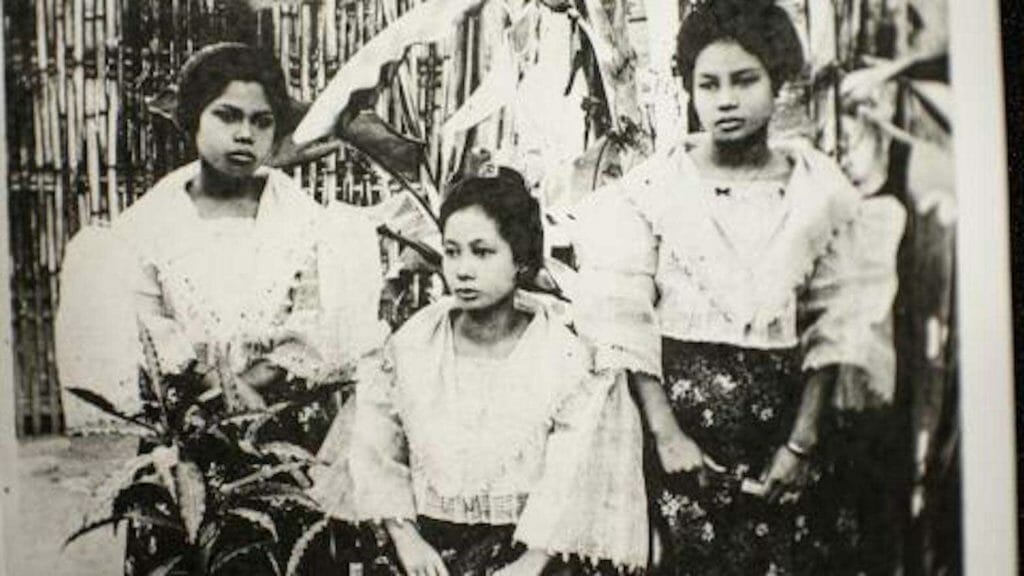Project ‘decolonizing’ trove of American-era PH archives, artifacts at U of Michigan

Martha O’Hara Conway, member of ReConnect/ReCollect and director of the Special Collections Research Center, shows de la Cruz and Punzalan the papers of Tiffany Bernard Williams, a military officer in the Philippine Constabulary during 1914-17. U-M
A serious, long-term effort is under way to re-curate and re-contextualize the University of Michigan at Ann Arbor’s extensive and dispersed collections of U.S. colonial-era Philippine historical archives and cultural artifacts.
The project aims to make these archival materials accessible to communities while bringing to light university’s link to U.S. imperialism in the Philippines.
“There’s not enough recognition of how complicit our institution was in American imperialism, and not enough knowledge and education about that history,” Deirdre de la Cruz, associate professor of history at the College of Literature Sciences and the Art, stated on the U-M School of Information website.
“What are these Philippine artifacts and photographs and archival materials doing here, halfway around the world, in the middle of the United States? Do Filipinos even know they exist?”

Ricky Punzalan, associate professor of information, and Deirdre de la Cruz, associate professor of history and Asian languages and cultures, are co-principal investigators of the ReConnect/Recollect project. U-M
The collection is spread out around the campus, in various libraries and museums. Artifacts are also further isolated by spotty, poorly named and disconnected records.
“There is, at best, inaccurate information around the description of the collection, and that’s to put it mildly,” said Ricky Punzalan, associate professor of information and Filipino scholar, who is co-leading the project with de la Cruz . “Some items have information that is just wrong, racist, or harmful to Indigenous source communities.”
The new project: ReConnect/ReCollect: Reparative Connections to Philippine Collections at the University of Michigan is looking at the collections with fresh eyes.
It aims to repair harmful historical descriptions, and construct new models for how to best engage community members and scholars with the plethora of Filipino history stored at U-M.
De la Cruz and Punzalan assembled a team of researchers, students, librarians, archivists, and community members to take on this critical reparation work, collaborating with collections faculty and managers at U-M’s Bentley Historical Library, Special Collections Research Center, and Museum of Anthropological Archaeology to find ways to properly represent the Philippine collections.

Dean Worcester and other colonalists who lived in the Philippines took thousands of photographs of Indigenous Filipinos during their stay on the islands. Photographs like the one above are stored in numerous locations on U-M campus. U-M
U-M recognized the importance of the reparative work and awarded the project a $500,000 grant toward the pilot program.”
The collections were started by U-M alumnus Joseph Beal Steere, a 19th century naturalist whose expeditions were funded by a rich uncle. Between 1870 and 1875, he traveled to South America, the Philippines, Taiwan and China.
By the time Steere returned to U-M, he had amassed some 60,000 specimens of plants, animals and insects, and more than 800 cultural objects. In 1887, Steere returned to the Philippines with students including Dean Conant Worcester, who eventually settled in Manila and was named Secretary of the Interior of the Philippine Islands by President McKinley during the American colonial occupation of the country.
“Like a lot of white imperialists, Worcester was an avid photographer, and over the course of his career in the Philippines used photography extensively to document Indigenous communities and Filipinos, and to defend the imperialist ideology and civilizing mission,” said de la Cruz. “It makes up one of the most extensive Philippine collections in the world, and has been used by many scholars.”
“I believe that the existence of these collections, however well-meaning, continues to perpetuate the colonial harms: the racist information, the continued offense and disregard of Indigenous Filipinos, the continuous display of these items without correct attribution… it’s insulting,” said Punzalan.
The team is just in the first year of its two-year pilot program, but Punzalan realizes this is not a two-year endeavor.

